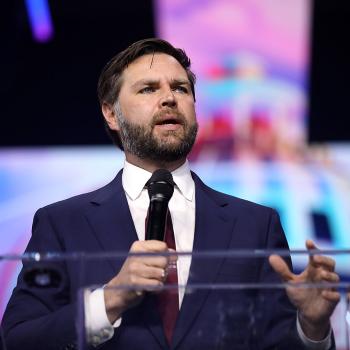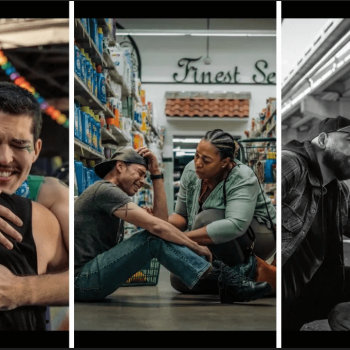Editors' Note: This article is part of a Public Square conversation on Interfaith Dialogue. Read other perspectives here.
Twenty years ago, my dream of living in an interfaith world (not that I even knew the term back then) did not include having such close association to ministers, clergy, or religious leaders of any particular doctrine. I imagine being able to talk to my teenage self, asking her how she feels about the fact that today, not only can I say I've had many discussions with a variety of religious leaders from different faiths, I would even call some of them friends! In a vague, far-off voice, I can hear her say, "That kind of freaks me out. I mean, it's weird, but I'm glad that you're finally able to be open and honest with those people about your choice to be pagan, and that they accept you for who you are."
So, after my imagined dialogue with my younger self, I received an invitation to address the question, "does interfaith dialogue work?" Having had the opportunity these past four years to mingle with people of faiths other than my own, the simplest answer would be, yes. Not only does interfaith dialogue work, it works very well.
What does interfaith dialogue accomplish?
For me, interfaith dialogue assists my deep desire to break the belt of the Bible set so long ago here in the South. As a teen, I was ostracized and judged for being different. Today however, I enjoy the luxury of having an open-minded boss and being surrounded by many pagan friends. I no longer feel alone, thanks to that. And what's more, I can now count amongst my friends Christian clergy and laypersons.
Does it have any measurable impact?
Reports and statistics can show us in black and white a measurable account of what our interfaith work is doing, but in the end, it's the shared community experience of a new type of connectedness that will never show up on a report. Who is it supposed to impact? Are we talking just mainstream religions, or does the indigenous population get to be included?
We're in the middle of the process, so unless forecasters share their direct-line to All That Is, Goddess, God, gods, what have you, we'll never be able say with certainty that the impact of what we're doing will have any beneficial resolve. We can only make a guess, based upon our hope that the community building we're focused on will indeed help to create a world where all people's faiths and traditions are accepted -- not just tolerated, but acknowledged as an authentic way of being.
We're trying to create a more amenable world that all of us want to live in. Interfaith dialogue provides a venue for people of different faiths to come together at one table. Nowhere else can there be a mixed crowd such as this that provides ease, familiarity, and fun. I can honestly say that my involvement in interfaith work has deepened my acceptance of Christianity, Islam, and Judaism. Before I started on this path, I would never have approached a Jewish colleague and asked him what he thought of the Christian speaker we listened to together. I would not have felt comfortable chatting with a random waitress about interfaith work while having lunch with my mom.
Lastly, does interfaith dialogue help reduce violence or solve any real-world problems?
Does anything reduce violence or solve real-world problems? I think not. Humans have been committing murder, incest, rape, thievery, what have you since recorded history has been recorded. Around the globe, there are many social justice bandages being applied to the stressors of life, and hopefully continued pressing of those bandages will eventually heal humanity's deep wounds. But, too many times humans have done things "in the name of God." Leaders of those who want everything (like Hitler) have ignored the gentle stories found in religious literature. They presume their religion is the only correct one for all of humanity to live by.
Interfaith dialogue prevents this egotistical stance from occurring. At a great rate on a daily basis, I observe more and more people "putting down their shields" to stand together. Not in a Kumbaya-type gathering, but on a pragmatic, connected sense that we're all in this together. As a friend recently stated, "Our story cannot be told by one person; there are countless possible combinations for the same lock we all are trying to open. This in essence is the meaning of the interfaith movement." Interfaith dialogue offers the eager listener a chance to hear of another combination. So, yes, I would have to say that interfaith dialogue does indeed work.
2/12/2014 5:00:00 AM




